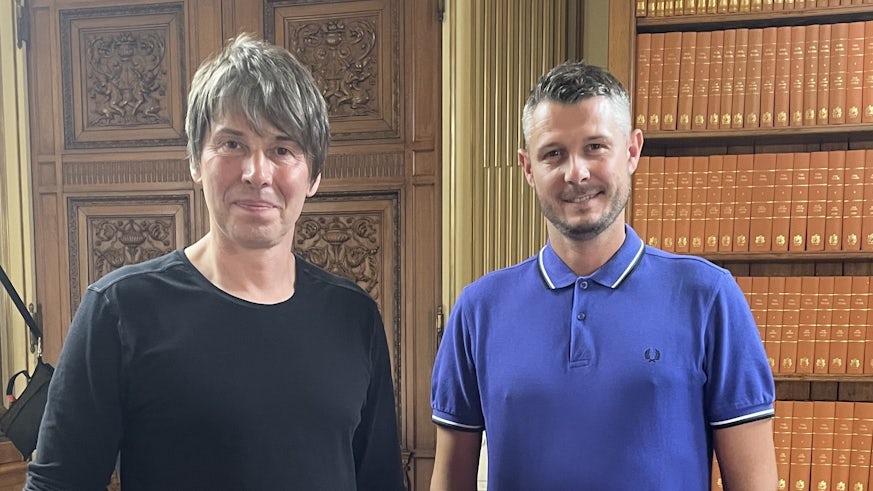Cardiff University collaborates with Professor Brian Cox to educate school students on artificial intelligence
16 February 2024

Cardiff University has teamed up with The Royal Society and Professor Brian Cox in the next instalment of Brian Cox School Experiment videos.
As well as helping teachers bring exciting, creative, practical science to the classroom, the latest films will equip students with skills and information on emerging jobs and industries being reshaped by scientific advances.
Professor Brian Cox, physicist, and Royal Society Professor for Public Engagement in Science said: “The next generation of scientists will lead the way on finding new ways to tackle climate change, improve food security, and shape the evolution of artificial intelligence as it transforms society."
Professor Pete Burnap, Director of the Cardiff Centre for Cyber Security Research and Cyber Innovation Hub, and Co-Director of the Digital Transformation Innovation Institute, shared his research on machine learning and cybersecurity, and showcased the university’s research into technologies designed to understand threats to our public spaces and how to make them safer.
Professor Burnap said: “It was a pleasure to be involved in telling exciting and inspirational stories about real world uses of machine learning and cybersecurity."
He continued: "I hope the Royal Society videos are seen by young people whose first instinct is – “I want to do that!””
Aimed at students aged 11-14, the resources span topics at the forefront of global scientific research, including genome editing for sustainable crop production; ocean acidification, carbon capture and the loss of biodiversity; and machine learning and its use in cybersecurity.
Downloadable resources for the three topics are available on the Royal Society’s website and YouTube channel, the STEM learning UK resource library, and the Times Education Supplement (TES) resources pages.


No comments:
Post a Comment